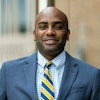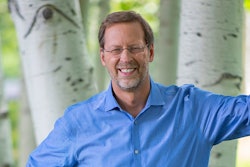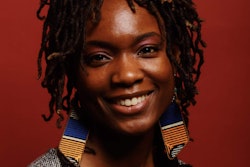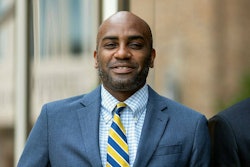Shortly after resigning as associate director of the Office of
Management and Budget (OMB) in February 1995, Christopher Edley Jr.
prepared to resume teaching duties at Harvard Law School, where he had
been tenured since 1986. But before he could leave the government,
Edley was approached by White House officials who wanted him to chair a
high-profile, interagency working group on affirmative action.
Edley considered the assignment a risky one. At the time, the
national news media was reporting that affirmative action had become
one of the most divisive issues in the country. Controversial lawsuits
challenging it were pending in the federal courts. President Bill
Clinton had come under pressure to make clear to the nation where his
administration stood on the topic.
Nonetheless, Edley realized his political experiences — spanning
from the Carter presidential campaign of 1976 to the Dukakis
presidential campaign to the Clinton Administration’s OMB — had
brought him too far in public life to avoid duty on a policy matter he
deemed critically important to the nation. Well-versed in civil rights
law and social policy, Edley had believed himself among the best
prepared in the Administration to lead such a working group. He feared
that his refusal to participate would allow the working group to fall
under the domination of staffers less sensitive to affirmative action
policies than he. He took the job.
The president followed the recommendation the working group under
Edley’s leadership and defended affirmative action as morally just and
necessary. Clinton won praise from the civil rights community and from
observers who applauded his firmness on the issue. Edley, who departed
the administration during the summer of 1995, called the experience one
of the best he has had in public life. “I wouldn’t change a thing,” he
said.
During the first term of the Clinton Administration, Edley stood
out as one of several hundred African Americans holding appointed
political position. Yet from the ranks of faculty and administrators at
American universities and colleges, Edley found himself belonging to a
much smaller category of black appointees. This small but well-placed
group of academics-turned-public servants included others such as Drew
S. Days III of Yale University Law School, Dr. Walter Broadnax of the
University of Maryland, Ron Noble of New York University Law School,
Dr. Joycelyn Elders of the University of Arkansas, and current
Assistant Secretary of Lahor Dr. Bernard Anderson.
The Clinton Administration has gotten high marks from diversity
advocates for its record in hiring minority political appointees.
African Americans, in particular, held a record number of political
positions — more than 600 — in the first term of the Clinton
Administration. According to Dr. Yvonne Scruggs, executive director of
the Black Leadership Forum at the Joint Center for Political and
Economic Studies that is double the number of African American
appointees who served in the Carter Administration, another presidency
credited with hiring Blacks in significant numbers.
The road from academe to top-level public service can be very
bumpy, however, as can be attested to by law professor Lani Guanier and
Spelman College president Johnetta Cole — each of whom was considered
for top posts in the Clinton Administration. The lack of unwavering
support for these women from the White House is the reason the pending
nomination of Alexis Herman as secretary of labor is seen by many as a
litmus test for the extent to which Clinton will stand by his African
American nominees.
As President Clinton s second term gets underway, African Americans
hold numerous political positions in the administration — including
top jobs at Labor, Transportation, OMB, and the Veterans Department.
The Pros and Cons for Academia
Scruggs, who served in the Carter Administration, believes that too
few African Americans in academia try their hand in the national
political arena. She feels that more of them should seek federal
political appointments. Her view is shared by other former African
American federal appointees w ho hail from universities.
Political appointee positions differ from civil service jobs, which
are considered nonpolitical and account for the vast majority of all
federal positions. When the presidency switches from one party to
another, many political appointee jobs become vacant. When a new
president is elected but comes from the same party as the former
president, he is also likely to fill most political jobs with new
hires. And w hen an incumbent president wins re-election, as did
Clinton, hundreds of appointees leave jobs that require replacements.
An appointee’s position in a presidential administration is
considered a notable prize for many thousands of politically active
Americans. It can boost an appointee’s political standing in his or her
community. It also provides experience to many who eventually seek
elected office and future appointments. And appointees can later move
into comfortable private sector positions.
For those in academia, service in a federally appointed job can
prove beneficial to the careers of teachers and administrators,
according to Scruggs, who has chaired the City and Regional Planning
Studies department at Howard University Aside from the exposure to
national policy-making, appointees make valuable contacts with
high-level political officials. Scruggs says that her stint in the
Carter Administration — as an Assistant Deputy Secretary at the U.S.
Department of Housing and Urban Development — helped her become a full
professor at Howard and allowed her to collect research data for a
dissertation in city and regional planning.
But Scruggs cautions that seeking and holding a federal appointment
can turn into a risky enterprise — particularly for academics.
“These aren’t long-term jobs. One must understand clearly the
risks. You can fall behind in your effort to get tenure,” warns
Scruggs, who adds that the struggle by faculty to gain and maintain
tenure by meeting publishing and teaching requirements is at odds with
pursuing an appointed position — especially if that means spending
time away from the campus in campaigns.
“It really depends upon the individual and what he or she wants to
accomplish in public life,” says Scruggs, who also advises, “But
whatever [those who seek political appointments] do, it should be
well-planned. “
“A Life in Public Service”
For the past twenty years, Edley has combined a career in public
service with that of law professor. He is the son of Christopher Edley
Sr., a former head of the United Negro College Fund, and is a graduate
of Harvard Law School, as is the elder Edley.
As a law school student, the younger Edley joined the Carter
presidential campaign. After completing his law degree, he worked in
the Carter White House and at what was then the U.S. Department of
Health, Education and Welfare. In 1981, Edley returned to Harvard Law
School, where he accepted a teaching job. From that point on, he would
use his teaching position at Harvard as a base from which to pursue
ventures in national politics.
“The primary thrust of my career has been to pursue a life in
public service and to have teaching as a secondary pursuit,” Edley says.
The young professor taught law school courses in taxation and
national defense policy as a means of immersing himself in the details
of complex public policy areas. He specialized in administrative law,
which allowed him to use his experiences from the Carter Administration
to teach students about the workings of federal agencies. Then in 1987,
Massachusetts Governor Michael Dukakis recruited Edley to join his
presidential campaign.
Edley, who had worked for Dukakis in the 1982 and 1986
Massachusetts gubernatorial campaigns, turned down a general counsel
position offer to become the national issues director for the Dukakis
campaign. The job required that Edley oversee a staff to educate the
candidate and develop issue positions which the candidate could present
during the campaign.
“Had I gone into private practice after the Carter Administration,
or followed a typical route as a law professor, I would never have been
in a position to become national issues director in the Dukakis
campaign,” Edley says. “My experience in the Carter Administration and
being a law professor steeped in public policy qualified me for the
job.”
Following the failed Dukakis campaign, Edley returned to Harvard to
resume teaching. Not eager to join a national campaign again. Edley sat
out the 1992 presidential race. After Clinton’s victory, Edley was
offered a job on the Clinton transition team, which led to the
associate director’s job at OMB. After leaving the Clinton
Administration, Edley completed a book in 1996 — entitled, Not All
Black or White: Affirmative Action and American Values — which grew
out of his experiences while serving on the special task force on
affirmative action.
Since returning to Harvard, Edley has pursued efforts to write and
lecture about affirmative action. He is teaching courses which immerse
him in the details of the new federalism — redefining state and
federal responsibilities, and civil rights policy. He considers his
current sojourn at Harvard as a period to recharge himself before the
next tour of duty.
“I want to go back to Washington in a few years,” Edley says.
Sharing Insights
Drew Days did not set out to make service in a presidential
administration the cornerstone of his career as a civil rights attorney
and law professor. But his three-year tenure as the Solicitor General
at the U.S. Department of Justice under Attorney General Janet Reno
stands out as a career high for Days, who is currently teaching law at
Yale.
The Solicitor General’s office at the Justice Department carries
the responsibility of representing the federal government before the
U.S. Supreme Court. The office and duties of the Solicitor General are
expected to be run in nonpartisan and nonpolitical manner. Typically
the Solicitor General gets involved in nearly two-thirds of the Supreme
Court’s cases –either representing the federal government in a dispute
or as a “friend” of the court by providing guidance to the justices.
During his tenure, Days says that he supervised a team of attorneys
that made more than 200 appearances before the Supreme Court. Seventeen
of those appearances were made by Days, who says, “I am quite happy
with my experiences as SG. I don’t foresee myself going back into
government service again.”
Days is the third African American to serve as the Solicitor
General — the late Supreme Court Justice Thurgood Marshall served
under President Lyndon Johnson, and Wade McCree served under President
Carter. Days traces his path to the Solicitor General’s office back to
working with McCree during the Carter Administration. Prior to joining
the Carter Administration, Days had worked as a civil rights attorney
for the NAACP Legal Defense Fund.
“When Carter was campaigning, I was litigating police brutality
cases in Tennes-see. I wasn’t in a position to get involved in a
political campaign,” Days admits.
Under Carter, Attorney General Griffin Bell sought out Days and
hired him to be chief of the civil rights division at the Justice
Department. “It was tough duty,” Days says. But McCree became his
mentor and inspired Days to consider the possibility of seeking the
Solicitor General’s job in the future.
“I admired what McCree was doing as Solicitor General, and I left
the Justice Department with an interest in the job,” Days recalls.
A graduate of Yale’s law school, Days had prior experience as a
teacher at Temple University. Following the Carter Administration, he
became a law professor at Yale Law School, where he taught for twelve
years before becoming Solicitor General. During that time, he regularly
used his experiences from the Carter Administration in teaching civil
rights law.
With Clinton’s victory in 1992, Days made it known that he wanted
the Solicitor General s job. The President nominated Days for the
position and the Senate approved his nomination in May 1993. Days left
the Solicitor General’s office in 1996 to return to Yale.
A stint in the Peace Corps had made him aware of the possibility of
government service. And while Days says that he did not begin his
career with the goal of serving in a high-level appointed office, he
wanted public service to play a significant part.
“You don’t have spend a lifetime in government. You can serve for awhile and go back home,” Days said.
Days believes it is healthy for democracy for people who serve in
government positions to return to their home communities to share
“their insight” with others. He also says that the experience can be of
great value in teaching.
“A Neophyte in the Policy World”
Sheryll Cashin, a first-year visiting law professor at Georgetown
University Law Center in Washington, D.C., brings a long list of
accomplishments in national politics and government service to her
newly-launched academic teaching career. Although her professors at
Harvard Law School had long ago encouraged her to consider teaching,
Cashin did not consider it a desirable option until after she had
toiled in the Clinton White House for more than three years.
Says Cashin: “[Teaching is] something that I had thought about, but
it was not a concrete goal of mine [before joining the Clinton
Administration’s transition team in 1992]. Many of my professors in law
school had encouraged me to consider teaching. I had pursued the kinds
of activities that many in academia pursue before going into teaching.”
Raised in a politically active family in Huntsville, Alabama,
Cashin knew from an early age that she wanted to be involved in public
life. In the late 1960s, her father organized an independent political
party to provide African American voters in Alabama with an alternative
to the state Democratic party –which at the time supported a platform
that was hostile to the conditions of the state’s Black residents.
Cashin, who studied electrical engineering at Vanderbilt University
and jurisprudence at Oxford University in England as a Marshall
scholar, earned a law degree from Harvard Law School in the late 1980s.
After law school, she was a judicial clerk for D.C. Court of Appeals
Judge Abner Mikva and for Supreme Court Justice Marshall. Cashin
practiced law for a short time in Birmingham, Alabama before returning
to the nation’s capital in 1992.
“I was a neophyte in the policy world,” Cashin says of her return to Washington
The experience of working in the Clinton White House as a policy
aide taught Cashin the process of policy development and
implementation. She initially worked as an assistant to Gene Sperling,
then Deputy Director of the National Economic Council in the White
House. In her first few months on the job, Cashin was assigned to help
push the controversial 1993 budget through Congress — the budget that
was the central focus of two federal government shutdowns.
After passage of the budget, Cashin helped coordinate the
implementation of Empowerment Zone and Enterprise Community
legislation. She was eventually promoted to serve as Staff Director of
the Community Empowerment Board, an interagency taskforce chaired by
Vice-President Al Gore. As Cashin grew more savvy and skilled on the
job, she increasingly grew weary of the grueling pace of White House
life.
“I found that I was reacting to everything. I never had the time to
be reflective, deliberative and well-versed substantively as I wanted
to be,” she says. “The source of frustration was [that] I didn’t have
the luxury of time to grapple with issues.”
By 1996, this young single attorney had grown convinced that
teaching law would offer her another outlet for her talents and
interest in public policy.
“I wanted the freedom to pursue ideas and I wanted the quality of life that you have in academic life,” she said.
Cashin signed on with Georgetown and began teaching administrative
law in the fall of 1996. This semester, she is teaching a seminar
entitled Urban Policy, Urban Development and the Law. Although she
remains interested in public service, Cashin says her immediate goal is
to do well and acquire tenure at Georgetown. She credits her White
House experiences with providing her with insight into the workings of
the federal government.
“There’s no question I’m better prepared to teach as a result of
working in the Clinton White House. It has been an invaluable
experience,” Cashin said.
Some Practical Advice
Dr. Bernard Anderson, who served as an economic adviser in the
Carter presidential campaign of 1976, currently is an assistant
secretary of Labor for Employment Standards. He has spent most of his
career as an economist at the University of Pennsylvania in
Philadelphia.
Anderson says that college-level teachers and administrators who
desire a role in policymaking have to first demonstrate excellence in
their academic fields. With solid credentials in hand, an academic then
has to be aggressive about participating in campaigns and forums where
they can meet elected officials.
“As an economist, I have always had an interest in influencing
public policy. I have made an effort to get out of the ivory tower and
off the campus,” says Anderson.
Edley suggests that teachers should also consider the possibilities
of public service at the state and local government levels.
“There are always more hard problems than there are good people to solve them,” he said.
Academics & Public Service
Walter Broadnax, formerly deputy assistant secretary of the
Department of Health and Human Services under President Bill Clinton,
is now professor of public policy at the University of Maryland-College
Park.
Drew S. Days III, formerly solicitor general under President
Clinton, is now professor at Yale University Law School. He served a
previous stint as assistant attorney general for civil rights in the
U.S. Department of Justice under President Jimmy Carter.
Joycelyn Elders, M.D. Surgeon General under President Bill Clinton, is now at the University of Arkansas for Medical Sciences.
Bonnie Guiton Hill, formerly Assistant Secretary, U.S. Department of
Education under Presidents Ronald Reagan and George Bush, became dean
of the School of Business at the University of Virginia and was just
named president and chief executive officer of the Times/Mirror
Foundation.
Augusta Kappner, who was assistant secretary at the Department of
Education under President Clinton, returned to academe as president of
Bank Street College of Education.
Catherine LeBlanc, formerly director of development at Clark Atlanta
University’s school of business, is now executive director of the White
House Initiative on Historically Black Colleges and Universities.
Condaleeza Rice, formerly director for Soviet and East European
Affairs of the National Security Council under President George Bush,
is now provost at Stanford University.
Louis Sullivan, M.D. former secretary of Health and Human Services
under President George Bush, is now president of Morehouse School of
Medicine.
COPYRIGHT 1997 Cox, Matthews & Associates
© Copyright 2005 by DiverseEducation.com















